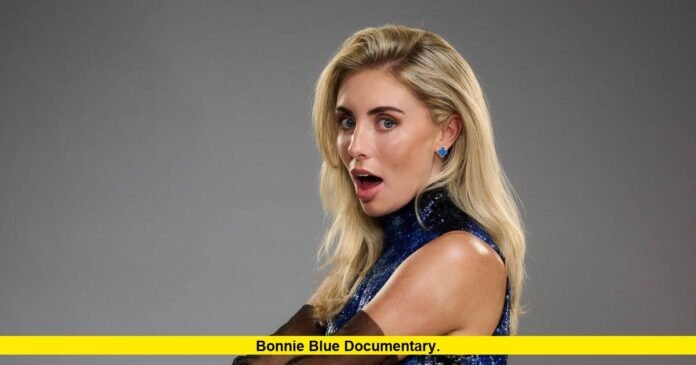The release of “1000 Men and Me: The Bonnie Blue Story” documentary on Channel 4 this week has thrust the bonnie blue documentary into the spotlight, igniting fierce debate across the UK. Documenting Bonnie Blue—real name Tia Billinger—a 26-year-old former NHS finance recruiter turned OnlyFans star, the film details her highly controversial sex stunt earlier this year: her claim of sleeping with 1,057 men in 12 hours. As soon as it aired, reactions from critics, viewers, and even participants took over both traditional and social media.
Viewers describe the bonnie blue documentary as unfiltered, highly provocative, and unlike anything previously aired on mainstream British television. The film offers rare behind-the-scenes access to Blue’s “1,000-men challenge,” showing preparations that included purchasing over 1,600 condoms and 50 balaclavas, along with revealing personal scenes from her daily life and work as a controversial content creator. Despite her claims of empowerment and financial success—she allegedly earns over £1.5 million a month—the programme drew mostly negative or mixed reviews. Many critics called it “sad, uncomfortable, and prurient viewing,” questioning the documentary’s focus and the ethical implications of the stunt.
Public and Critical Reaction
- Channel 4 faced backlash and was forced to defend airing the film before broadcast, highlighting that their goal was to explore Blue’s divisive business model, polarising approach to social media, and the realities behind her persona.
- Some viewers and critics noted that the documentary lingered more on shock value than real insight, with The Independent reviewer highlighting moments where Blue’s vulnerability appeared to show beneath her bravado.
- Social media exploded with debate. Some, including participants in the event, described their experiences as “surreal.” Others questioned the stunt’s practicality, with the “1,000 men” claim sparking skepticism even among viewers and attendees.
- Despite the controversy, the bonnie blue documentary trended across Google, YouTube, and Instagram, drawing both criticism for normalising extreme adult content and curiosity for its raw, unfiltered portrayal of Blue’s life.
Key Details at a Glance
Some see Bonnie Blue as the face of “porn maximalism” and modern digital adult stardom. Others argue the film’s approach is exploitative, with debates focusing on feminism, online safety, and the boundaries of mainstream media.
What’s your take? Has the bonnie blue documentary shattered taboos, or simply crossed ethical lines? Share your thoughts below and let’s keep the conversation going.
